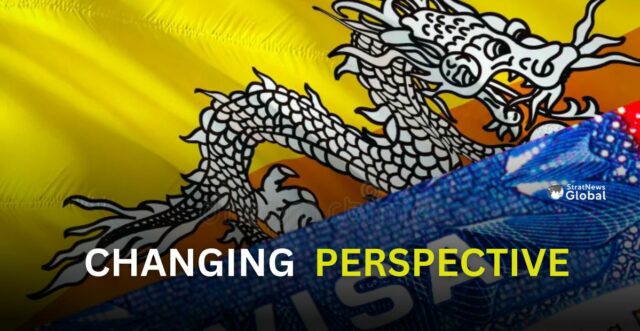For years, Bhutan has been known as a quiet Himalayan kingdom that kept the outside world at arm’s length and leaned heavily on India for support. But a new study suggests that Bhutan’s younger generation is looking at the world differently.
The report, Young Bhutan and the World: A Preliminary Survey of Perceptions on Foreign Policy by Aditya Gowdara Shivamurthy of the Observer Research Foundation, finds that while India still holds a special place in Bhutan, young Bhutanese want their country to have more choices and more partners.
India is still trusted the most. Many see India as the country’s “first responder” in times of crisis. India has built Bhutan’s roads, schools, and hydropower projects, and even shaped parts of its democracy. “India’s influence in Bhutan is neither lost nor completely unchallenged; the reality is more complex,” Shivamurthy notes.
The youth of Bhutan, who see India as Bhutan’s closest partner, also worry about the risk of being too dependent on it. Memories of India’s sudden kerosene subsidy cut in 2013 still linger.
Today, Bhutan is facing what its PM Tshering Tobgay describes as an ‘existential threat’ and ‘national crisis’ as many young Bhutanese are migrating abroad. Thousands of Bhutanese students now study in Australia, and have created a large Bhutanese community in cities like Perth.
Other countries like Japan are respected for its long-standing development aid, while the United States appeals through culture and education, even if official ties remain weak. South Korea has globally attracted teenagers through their K-pop and dramas and Bhutanese teenagers are no different.
Bhutanese youth are more cautious than fearful when it comes to China. With the traditional view of Beijing as a threat because of the border dispute and its takeover of Tibet, few want to study or work in China. However, many see it as an economic opportunity in the future. As Shivamurthy writes, Bhutanese youth are “neither hostile nor hopeful” when it comes to China.
Bhutan is struggling economically, women’s workforce participation has dropped, youth unemployment is high at 28.6%, and one in eight citizens lives in poverty. Nearly 9 percent of the population has already migrated abroad in search of better opportunities.
Besides this, many big changes have taken place in Bhutan. Bhutan became a democracy in 2007. Internet access now reaches nearly 90 percent of the population, and social media is everywhere.
Historian Karma Phuntsho once said Bhutan “has changed much more in the past 50 years than in the 500 years before that.” This rapid transformation is especially evident among the younger generations, who hold evolving views on foreign policy, global affairs, and a broader expectation for the future.
The question now is not whether Bhutan will change, but how. Can it keep its special friendship with India while building new ties with the wider world? We can say that Bhutan’s future may look very different from its past.





